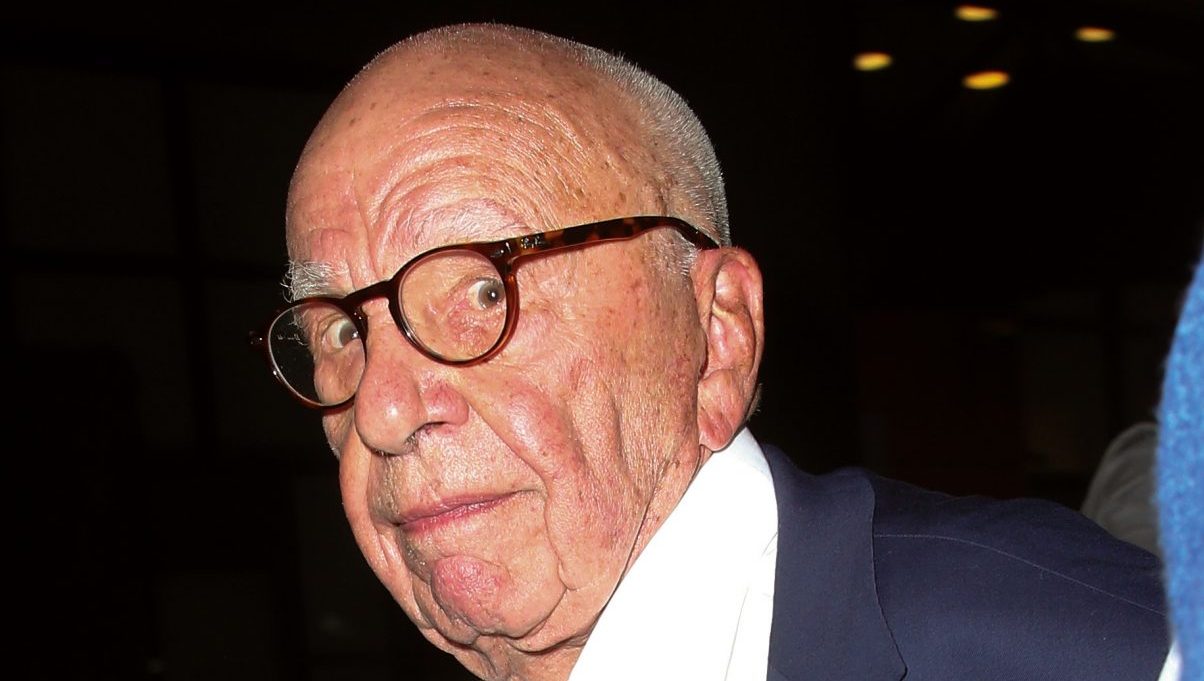Ever since Martin Ivens informed Sunday Times journalists that the paper would be backing Brexit in the EU referendum of 2016, there’s been disillusionment, if not despair, in the paper’s newsroom.
The arrival of Emma Tucker as Ivens’s replacement as editor four years on failed to ease the sense that it’s the owner Rupert Murdoch who dictates editorial policy and now the paper’s seeing still more staff voting with their feet. In the past 12 months alone, the health reporter Andrew Gregory; John Collingridge, who covers business; and now Shanti Das have defected to the Guardian and Observer group.
“The late Harry Evans always warned what would happen to the Sunday Times under Murdoch – that it would lose the kind of independent-minded, anti-Establishment edge it had when he edited it and become a mouthpiece of the hard right,” one former staffer tells me. “That so many staff are choosing to go to newspapers with politics so diametrically opposed to the Sunday Times’ speaks for itself. They’re as mad as hell and they’re not going to take it any more.”
He adds that Ivens had originally given his senior staff the impression the paper would come out for Remain in the referendum and they stood around him “open-mouthed” when he made the announcement the paper would be backing Leave.
No names, no pack drill, but last year two individuals who were at the time Sunday Times staffers were attempting to raise funds to set up their own left-of-centre, anti-Brexit newspaper. The New European got there before them, of course, but the more independent voices in this country the merrier.
A contemporary of Dame Cressida Dick at Balliol, Oxford, tells me wearily that the Metropolitan Police Commissioner – whose intervention in the Sue Gray saga failed to stop significant damage being inflicted on Boris Johnson –was always destined to be an Establishment toady.
“Whenever there was any kind of argument between the students and the staff, Cressida always took the side of the staff,” he recalls. “A lot of it came down to the fact her dad had been a senior tutor there and that made her almost pathetically reverential to the place.” He describes her as a “uniquely dull, as you would imagine someone studying agriculture and forest sciences would be.”
The former education minister Gavin Williamson may have been unkindly mocked for his voice – some compared it to that of Private Pike in Dad’s Army – but he’s now having the last (high-pitched) laugh.
Mandrake hears Williamson has just been signed up by Chartwell to talk on the after-dinner circuit and he hopes to undertake eight to ten speaking – or maybe that should be squeaking – engagements a year. No word on remuneration, but he’s been green-lighted by the Commons’ advisory committee on business appointments. If Johnson gives him his ill-deserved knighthood, that’d probably make his words of wisdom worth a few more quid.
I wasn’t surprised that Tom Tugendhat, as a former military man, should have been first over the top to say he’d be up for fighting to succeed Boris Johnson as PM. While briefly contesting Canterbury for the Lib Dems in the 2019 general election, I had fun ganging up with Labour’s Rosie Duffield against Tugendhat in debates as his Tonbridge and Malling constituency bordered ours.
Tugendhat used to try flattering us into submission by saying Duffield was “fantastic” and I was “wonderful,” but all that bonhomie could occasionally leave him vulnerable. Once, as the cameras rolled and the three of us were sat on a sofa, I cheerily noted that “one of the ironies of this election is that all three of us are Remainers with no real quarrel.”
There was a delicious pause before Tugendhat finally woke up and said “um, no.” I then pointed out that he voted Remain in the EU election and that his mother and his wife both happened to be French.
More details of Liz Truss’s taste for the high life at the taxpayers’ expense. Mandrake can reveal that Truss, in her last round of travels at the Department of International Trade, managed to run up a £14,583.63 bill for taxpayers for a single overseas trip – utilising the Royal Flight, no less. She has only just got around to declaring the trip, which she undertook with an entourage of three officials. It took in Washington and San Francisco and ran from 11 to 16 July 2021.
Of course, that is mere chicken feed next to the half a million pounds it cost the taxpayer to fly Truss by private jet to and from Australia for trade talks in January.
I felt as if I was in a parallel universe this week: watching Jessica Turner creating the character of Theresa May in the rehearsal room for my play Bloody Difficult Women… just as the real May showed her true self in the Commons, eviscerating her successor after the publication of Sue Gray’s update on the violation of lockdown rules in Downing Street.
A Remainer who admitted she burst into tears when she heard the result of the EU referendum, it’s a tragedy the real May couldn’t have been more honest with herself – and the country – when she was in office. Turner’s performance is intriguing: she gets how May always appeared so awkward because she felt so thwarted and constricted while she was in office.
The real Mrs May has lately informed me she will be unable to attend the play’s press night on March 1: I hope she catches the show on another night. All too seldom do we get the chance – as Robert Burns put it – “to see ourselves as others see us…”
Lord Agnew dramatically resigned in the House of Lords as a treasury minister because he knew only too well how not to make the kind of “schoolboy errors” that resulted in conmen making off with £17 billion of Covid bounce-back loans.
Agnew is a wily businessman in his own right who declares in the register of peers’ interests that he has “significant control” of Ovington Management, a property investment company that has £18 million in assets.
Agnew held £21.2m in investments at his other companies, Ovington Investments and Ovington Operations. His total assets are worth a cool £40.4m.




